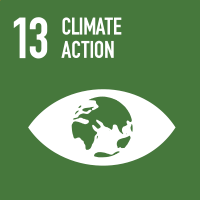Studying at the University of Verona
Here you can find information on the organisational aspects of the Programme, lecture timetables, learning activities and useful contact details for your time at the University, from enrolment to graduation.
Study Plan
This information is intended exclusively for students already enrolled in this course.If you are a new student interested in enrolling, you can find information about the course of study on the course page:
Laurea in Lingue e letterature straniere - Enrollment from 2025/2026The Study Plan includes all modules, teaching and learning activities that each student will need to undertake during their time at the University.
Please select your Study Plan based on your enrollment year.
1° Year
| Modules | Credits | TAF | SSD |
|---|
1ST FOREIGN LANGUAGE2ND FOREIGN LANGUAGE1ST FOREIGN LITERATURE2ND FOREIGN LITERATURE1 MODULE BETWEEN THE FOLLOWING2° Year activated in the A.Y. 2022/2023
| Modules | Credits | TAF | SSD |
|---|
1ST FOREIGN LANGUAGE2ND FOREIGN LANGUAGE1ST FOREIGN LITERATURE2ND FOREIGN LITERATURE3° Year activated in the A.Y. 2023/2024
| Modules | Credits | TAF | SSD |
|---|
1ST FOREIGN LANGUAGE2ND FOREIGN LANGUAGE1ST FOREIGN LITERATURE2ND FOREIGN LITERATURE1 MODULE AMONG THE FOLLOWING (PHILOLOGY RELATED TO 1ST OR 2ND FOREIGN LANGUAGE)1 MODULE BETWEEN THE FOLLOWING| Modules | Credits | TAF | SSD |
|---|
1ST FOREIGN LANGUAGE2ND FOREIGN LANGUAGE1ST FOREIGN LITERATURE2ND FOREIGN LITERATURE1 MODULE BETWEEN THE FOLLOWING| Modules | Credits | TAF | SSD |
|---|
1ST FOREIGN LANGUAGE2ND FOREIGN LANGUAGE1ST FOREIGN LITERATURE2ND FOREIGN LITERATURE| Modules | Credits | TAF | SSD |
|---|
1ST FOREIGN LANGUAGE2ND FOREIGN LANGUAGE1ST FOREIGN LITERATURE2ND FOREIGN LITERATURE1 MODULE AMONG THE FOLLOWING (PHILOLOGY RELATED TO 1ST OR 2ND FOREIGN LANGUAGE)1 MODULE BETWEEN THE FOLLOWING| Modules | Credits | TAF | SSD |
|---|
3rd foreign language B1 levelLegend | Type of training activity (TTA)
TAF (Type of Educational Activity) All courses and activities are classified into different types of educational activities, indicated by a letter.
English literature 3 [Cognomi M-Z] (2023/2024)
Teaching code
4S002949
Teacher
Coordinator
Credits
9
Language
English
Scientific Disciplinary Sector (SSD)
L-LIN/10 - ENGLISH LITERATURE
Period
I semestre (Lingue e letterature straniere) dal Sep 25, 2023 al Dec 22, 2023.
Courses Single
Authorized
Learning objectives
The course, held in English, aims at introducing Students to the English Literature from the 16th century to the Restoration (1660), paying emphasis on some canonical literary texts. Besides, it will offer skills and abilities for the critical analysis of literary texts and their genres. The course objective is to provide a good knowledge of the literature of the period (historical context, texts, genres, literary movements and authors) and to develop in Students a capacity of analysis and argumentative abilities in relation to the various typologies of literary texts set in their literary, historical, and cultural context. At the end of the course, students will be able to: - analyse the examined literary texts setting them in their historical and cultural context; - discuss them in an argumentative way, with due consideration to literary conventions, and by applying a critical, knowledgeable, and aware approach to the specificity of the literary texts; - present the acquired competences in English, and in a coherent and clear way.
Prerequisites and basic notions
The English Literature 3 LLS exam can only be taken after having passed the second year’s exams of English Language and Literature.
Program
The course will focus on the articulation of identity of the protagonists of Shakespearean works in the historical-social and cultural context of the time. Examples of adaptations of the works will be included in the programme, as well as examples of ecocritical analysis.
The slides and the texts in moodle are part of the programme.
The programme remains the same for attending students, non attending students, Erasmus students. Non attenting students are required to contact Prof. Fiorato.
A) Primary Texts (Arden edition or bilingual Garzanti)
William Shakespeare, Macbeth
William Shakespeare, A Midsummer Night’s Dream
William Shakespeare, Romeo and Juliet
William Shakespeare, The Tempest
B) Critical Texts
- Louis Adrian Montrose, "Shaping Fantasies": Figurations of Gender and Power in Elizabethan Culture, Representations, No. 2 (Spring, 1983), pp. 61-94
- Coppélia Kahn, Coming of Age in Verona, Modern Language Studies , Winter, 1977-1978, Vol. 8, No. 1, pp. 5-22
- Carolyn Asp, "Be Bloody, Bold and Resolute": Tragic Action and Sexual Stereotyping in "Macbeth", Studies in Philology , Spring, 1981, Vol. 78, No. 2 (Spring, 1981), pp. 153-169
- David Gray, "Command these Elements to Silence. Ecocriticism and The Tempest, Literature Compass, vol. 17, No. 3-4, pp. 1-10
- A.R. Braunmüller, Michael Hattaway, The Cambridge Companion to English Renaissance Drama, Cambridge, Cambridge University Press, 1990 (the parts indicated during the course)
C) History of literature: Paul Poplawski, English Literature in Context, Cambridge University Press, 2017 (the parts indicated during the course).
The bibliography may be integrated during the course.
Bibliography
Didactic methods
The course will be developed through lectures in English and moments of interaction with the students on the topics of the course.
Teaching support:
Information and teaching materials will be uploaded in the Moodle platform.
A specific tutoring service will be activated, the details of which will be explained in class and on the Moodle platform of the teaching.
In addition, receiving hours can be arranged also via ZOOM if necessary.
Learning assessment procedures
The exam will be an oral discussion in English on the topic of the course and the texts in the program (parts A,B,C).
Evaluation criteria
The exam will assess:
- the ability to discuss topics (literary trends, authors, genres) within the history of English literature
- the ability to present a critical argumentation on topics related to the texts of the syllabus (making examples from scenes and passages)
- the ability to make connections between the topics of the course, on the basis of the critical texts indicated in the programme
Criteria for the composition of the final grade
The final grade will be based upon the criteria indicated above.
Exam language
inglese English


